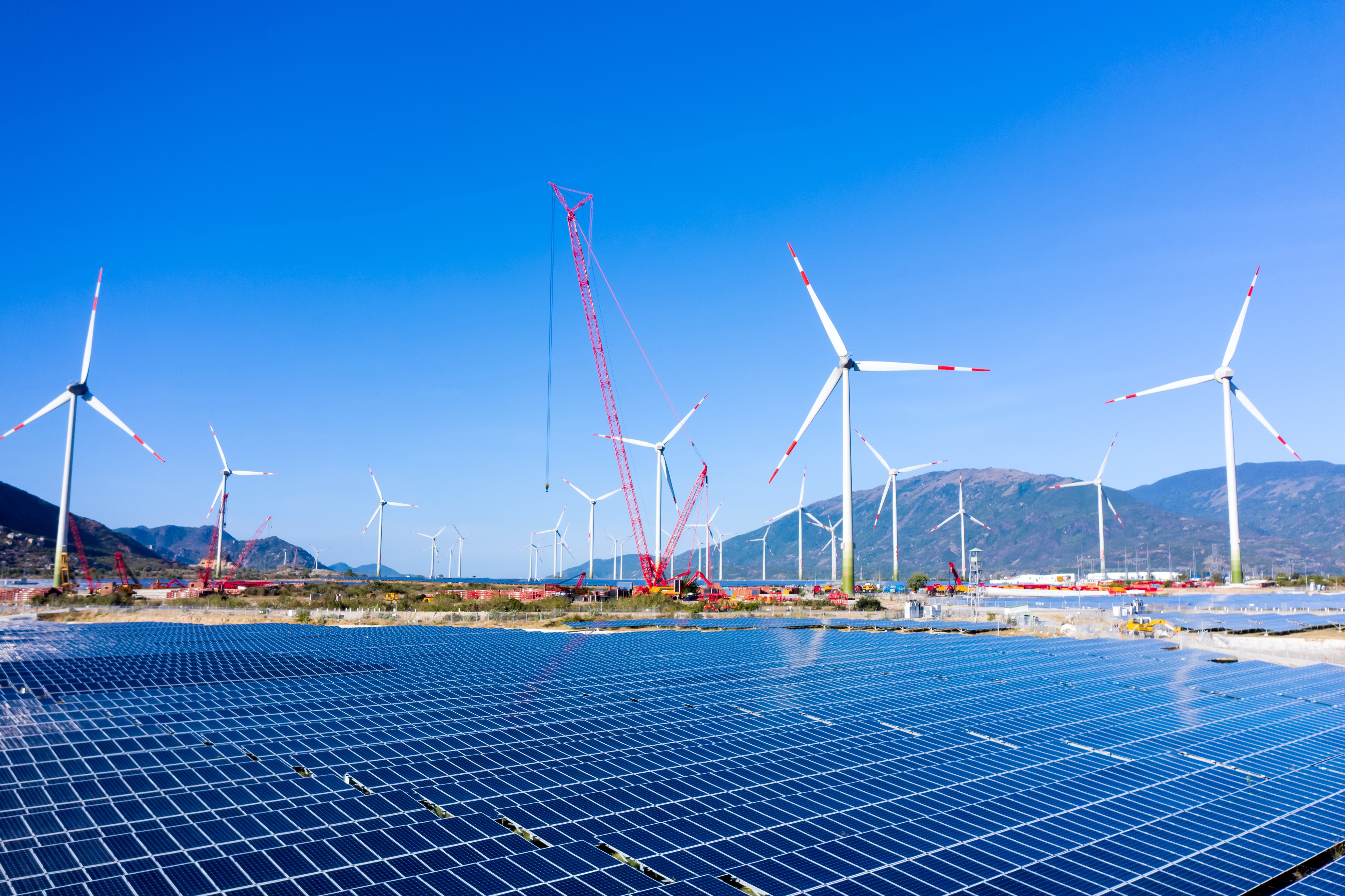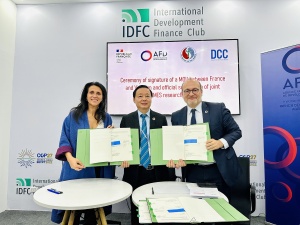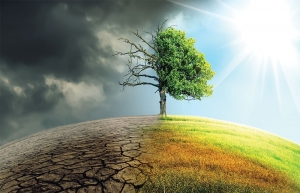Time is now for leaders to grasp climate breakthrough
Countries were far from agreeing the outline of a new climate deal at COP27 in Sharm El-Sheikh late last week, with the host country urging negotiators to resolve their differences ahead of a weekend deadline.
 |
| The outcome of the COP27 climate conference in Egypt hangs in the balance as nations scramble to issue stronger commitments and agree on the next steps to save the planet, photo Le Toan |
The UN published a first draft on Thursday of what could be the overarching agreement at the event, and the initial reaction from some campaigners was one of frustration. One Greenpeace representative said it paved the way for “climate hell”.
The draft repeats the goal from last year’s climate pact to “to accelerate measures towards the phase-down of unabated coal power and phase out and rationalise inefficient fossil fuel subsidies”.
Last year was the first time a decision agreed by all parties even mentioned fossil fuels and coal as part of the climate. But it does not call for a phase-down of all fossil fuels, as India and the EU had requested
The biggest move in the middle of the week did not even take place in Egypt. On Wednesday, leaders at the G20 meeting in Bali issued a separate declaration expressing support for a global goal to limit global warming, while also phasing out coal and speeding up climate finance.
“We resolve to pursue efforts to limit the temperature increase to 1.5°C. This will require meaningful and effective actions and commitment by all countries,” the declaration said.
Delegates in Egypt had been watching the G20 summit closely for signs that wealthy nations would be willing to make new commitments on climate change, even as their focus is distracted by the Ukraine conflict and rampant inflation.
“We welcome this declaration, but it means all G20 countries must raise the ambition of their 2030 targets by this year or next, to ensure the climate doesn’t overshoot the 1.5°C target,” said Ghana delegate Henry Kokofu. “The COP27 summit outcome must reflect a far stronger sense of urgency and obligation from the major emitters.”
The delegates at COP27 received a boost from a speech by Brazilian President-elect Luiz Inacio Lula da Silva, who vowed to re-engage the rainforest nation with international efforts to fight climate change.
But inside the negotiating rooms in Egypt, deep divisions remained, according to Egypt’s COP27 presidency special representative Wael Aboulmagd.
Reuters reported that an official involved in the talks said divisions remained over issues including whether rich nations should set up a fund to cover irreparable damage caused by climate change, the phrasing addressing fossil fuel use, and whether 1.5°C should even remain the strict target limit.
Scientists say keeping average global temperature rise to 1.5C is needed to avert the worst effects of climate change. Temperatures have already increased by 1.1C.
Climate envoy of the United States, John Kerry, had noted that a few countries were resisting mention of the 1.5C goal in the official text of the COP27 summit.
Eye-watering numbers
The very first day of the conference marked the tone. Many of the heads of state and government gathered in Egypt for the opening days, where 45,000 people from 195 countries heard a powerful speech from Pakistan’s prime minister, Shehbaz Sharif.
“Catastrophic floods this year impacted 33 million people, more than half our women and children, covering the size of three European countries,” Sharif said. “Raging torrents ripped out over 8,000km of metal roads, damaged more than 3,000km of railway track, and washed away crops covering four million acres. We became a victim of something we had nothing to do with, and it was a man-made disaster,” Sharif told the delegates.
“On one hand we have to cater for food security by spending billions of US dollars, and on the other we have to spend billions of US dollars to protect flood-affected people from further misery. How on earth can one expect us to undertake this gigantic task on our own?” he added.
Pakistan and other at-risk countries argue that the rich – source of most greenhouse gas emissions – must provide assistance to the poor that are most afflicted. “Loss and damage is not charity, it’s climate justice,” said Nabeel Munir, Pakistan’s climate envoy.
But the sheer amount of cash that is expected to be required is eye-watering. In a report jointly commissioned by the United Kingdom and Egypt, published last week, climate economist Lord Stern calculated that about $2 trillion a year would be needed by 2030 for the entire developing world, except China.
Despite some focus on the loss and damage issue, there has been actual little cash forthcoming at COP27 so far. The UK said that it would allow some debt payment deferrals for countries hit by climate disasters, while Austria and New Zealand pledged some funding regarding loss and damage.
Deals and debates
Nevertheless, determined to play their part in overcoming some of these huge challenges in any way they can, some nations came to the conference ready with new initiatives.
Handing over the baton to Egypt on the event’s first day, new British Prime Minister Rishi Sunak revealed that the UK will continue delivering on its key funding commitments, spending £11.6 billion ($13.8 billion) on international climate finance. The figure included a tripling of funding for climate adaptation and further money pumped into the Clean Energy Innovation Facility, which provides grants to academics in developing countries to accelerate clean tech development.
The UK also committed to new financial support for Egypt’s flagship COP27 initiative, called the ‘Nexus on Food, Water, and Energy’. The funding will develop projects including solar parks and energy storage innovations.
A new carbon credits initiative was also unveiled by US climate envoy Kerry. The plan, named the new Energy Transition Accelerator, aims to drive private investment into energy transition plans in developing countries. Ani Dasgupta, CEO of the World Resources Institute, welcomed the scheme. “Carried out correctly, leveraging voluntary carbon markets can help unlock billions of US dollars from the private sector to accelerate the energy transition,” Dasgupta said.
In a speech to COP27 delegates, US President Joe Biden pledged $20 billion in new domestic investments to reduce methane emissions and unveiled a strategy designed to call out ‘super emitters’.
US neighbour Mexico, meanwhile, intends to deploy more than 30 additional gigawatts of combined wind, solar, geothermal, and hydroelectricity capacity by 2030, reaching more than 40GW of combined wind and solar power. The new goal will be a foundation for achieving Mexico’s updated Nationally Determined Contribution (NDC).
India is prioritising a phased transition to cleaner fuels and slashing household consumption to achieve net-zero emissions by 2070, according to a national report released at the summit last week. And in South America, Chile is focusing on trimming rising methane emissions and expanding land protections in its updated NDC.
Among all the trading and negotiation in terms of finance and emissions targets, oil and gas companies also sent hundreds of lobbyists to COP27 to take part in talks. Many oil and gas groups have recorded unprecedented profits amid record fossil fuel prices, sent soaring by the Ukraine conflict.
Nations like India want others to agree to phase down all fossil fuels, rather simply phase down coal as was agreed at in 2021. However, African and Middle Eastern countries are keen to develop their oil and natural gas resources. Saudi Arabia in particular said it wants to avoid a deal that would “demonise” oil and gas.
As a result, climate campaigners have been warning of a “neocolonial” gas grab that would benefit only the gas multinationals and the country elites in regions such as Central Africa, while poor people would suffer even worse consequences of global heating.
At the same time, many western countries are wary of appearing hypocritical in urging African countries not to exploit their gas, and besides that, many European countries especially want to import African gas to ease their own cost of living crisis.
 | Vietnam reiterates strong commitments at COP27 Vietnam is engaging in negotiations regarding issues in which the country needs international support, such as financing and technical assistance to draft plans in energy transition and assess renewable energy potential. |
 | Acute challenge for world to tackle climate crisis at COP27 The biggest climate summit ever will test the resolve of nations to combat climate change, with many of the biggest influencers distracted by crisis, and developing countries clamouring for assistance. |
What the stars mean:
★ Poor ★ ★ Promising ★★★ Good ★★★★ Very good ★★★★★ Exceptional
 Tag:
Tag:
Related Contents
Latest News
More News
- Trung Nam-Sideros River consortium wins bid for LNG venture (January 30, 2026 | 11:16)
- Vietnam moves towards market-based fuel management with E10 rollout (January 30, 2026 | 11:10)
- Envision Energy, REE Group partner on 128MW wind projects (January 30, 2026 | 10:58)
- Vingroup consults on carbon credits for electric vehicle charging network (January 28, 2026 | 11:04)
- Bac Ai Pumped Storage Hydropower Plant to enter peak construction phase (January 27, 2026 | 08:00)
- ASEAN could scale up sustainable aviation fuel by 2050 (January 24, 2026 | 10:19)
- 64,000 hectares of sea allocated for offshore wind surveys (January 22, 2026 | 20:23)
- EVN secures financing for Quang Trach II LNG power plant (January 17, 2026 | 15:55)
- PC1 teams up with DENZAI on regional wind projects (January 16, 2026 | 21:18)
- Innovation and ESG practices drive green transition in the digital era (January 16, 2026 | 16:51)






















 Mobile Version
Mobile Version